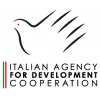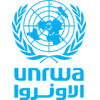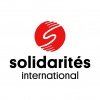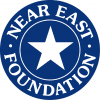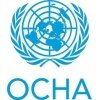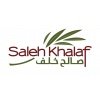Encouraging investment in Area C

Request for Quotation
Promotion of inclusive agricultural growth to ensure improved living standards and resilience of vulnerable communities in Area C of the West Bank
Terms of Reference for Encouraging investment in Area C
Background & Introduction:
PFU in Partnership with Oxfam is implementing a new project funded by EU, entitled “Promotion of inclusive agricultural growth to ensure improved living standards and resilience of vulnerable communities in Area C of the West Bank”. The project aims to Increase the income of small-scale women and men farmers and the protection and the use of their lands in Area C through upgraded capacities, improved land and water management practices and policies.
CONTEXT AND BACKGROUND
The state of Palestine total area of cultivated land is estimated at 1.2 million dunums, or 21% of the total area of the WBGS, of which 90% is in the West Bank and 10% in the Gaza Strip. Eighty-one percent of the area is rain-fed; the remaining 19 % is irrigated. While rangeland amounts to 2.02 million dunums, the area available for grazing is only 621,000 dunums. In addition, forests stretch over an area of 94,000 dunums.
In April 2019, United States President Donald Trump announced a “deal of the century” to resolve the Israeli-Palestinian conflict. The plan does not place any restrictions on Israel in regard to annexing parts of the West Bank. The plan proposes that Palestine will only be named a state, but Israel will continue to be in control of its borders, air space, foreign policy, and security. The deal proposes that the capital of Palestine will be on the outskirts of East Jerusalem and will not be established until four years into the plan. Palestinian sovereignty will be non-existent. In regard to borders, the plan recognizes 70% of the West Bank as the right of Palestinians, which gives Palestinians less land than previous proposals. The plan also will give the Jordan Valley, which is important for Palestinian agricultural, to Israel. The Jordan Valley, which allows Palestinian access to the River Jordan, irrigates 80,000 hectares of agricultural land in the West Bank. The plan would not allow Palestinians to control its own water resources. Any form of annexation would be completely disastrous to Palestinian control of their land and self-dependency.
President Trump’s “deal of the century” with plans of expanding settlements will unequivocally lead to the annexation of Palestinian land. The underlying principle behind the word ‘annexation’ is the unlawful removal of property from the jurisdiction of occupied individuals to the occupying forces and this concept can be applied to the way in which Israeli forces take resources from the occupied Palestinian Territories for their own benefit. Israel’s current and proposed annexation especially that of Area C, continues to deny Palestinians of land that is their own and the use of that land for self-development using their resources in their borders. At the moment, there are around 325,500 Israeli settlers in 125 settlements living in Area C in violation of international law. In 2019 Israeli Prime Minister, Benjamin Netanyahu, announced plans to annex 75% of Area C, which could increase the number of settlers living in Area C to one million by the end of the decade.
Annexation of Area C would not only destroy plans for a Palestinian state and two-state solution, it would completely destroy any opportunity for Palestinians living in Area C to become self-dependent. Not only are these sudden plans and policies made without the opinion or consent of Palestinians, they disrupt their daily lives. Palestinians are then thrown into a sudden need to adapt, having severe consequences socially, politically, and economically. In the case of annexation, Palestinians would lose all land (including but not limited to agricultural land) and resources, displacing hundreds of thousands of Palestinians and further increasing poverty and food insecurity. Therefore, it is critical to encourage investment in Area C to protect past, current, and future annexed Palestinian land.
PURPOSE OF THE Assignment
The consultant will be responsible for developing an incentive policy system for the MOA legal and land development departments to enhance responsiveness to increase investment in Area C and provide safety net for farmers in that area.
Assignment OBJECTIVES
- Conduct research to identify the best investment opportunities in Area C and how to legally proceed with those opportunities.
- Work with the Ministry of Agriculture, specifically with the Legal and Land Departments, to develop Area C agricultural investment and incentive policies to attract both private and public investment in Area C.
- Identify safety net options for farmers who invest in Area C, in order to encourage investment in Area C and ensure the availability of risk sharing policies
- Conduct interviews with relevant governmental bodies including Ministry of agriculture, Area C development committee (at the Ministers councils), stakeholders and investors to identify key information needed to encourage investment in Area C.
- Develop fact sheets and policy paper for donors to encourage investment in Area C, highlighting potential benefits of investment in Area C, and how to challenge the political impact of the annexation of Area C through encouraging investment in area C.
PLAN AUDIENCE AND USE OF FINDINGS
PFU will use the policy paper developed by the consultant to inform and raise awareness of key stakeholders, investors, and farmers about the current situation of Area C, the benefits of investing in Area C as a tool to protect the land from confiscation, and the procedures to legally invest in Area C.
The outputs of this consultancy will be utilized by PFU to highlight key information that will encourage investment in Area C, strengthen Palestinian existence in Area C through developing encouraging governmental incentives policies for investors and farmers in area C that obstacle the implementation of the Israeli annexation plan.
CONSULTANCY QUESTIONS
METHODOLOGY AND ACTION
The following methodology will be applied in carrying out the consultancy as outlined:
- A desk review of existing literature on the history and legal premises of annexation, especially of Area C. The consultant should highlight past, current, and future social, political, and economic impacts of annexation. He/she should also review past and current work/projects in relevant areas and highlight strengthens, weaknesses, and opportunities.
- Conduct research on Israeli violations on the ground aiming at emptying the land from its residents in order to confiscate and start the implementation of Trump’s deal of the century.
- Conduct research on past investments in Area C as well as possible future investment opportunities, highlighting all associated risks and benefits.
- Conduct meetings periodically with key stakeholders and investors in order to collect updated data including interviews with: Ministry of Agriculture (MoA) (specifically the legal department and land development department), Area C Development Committee ( established by the Palestinian Ministers Councils,) Ministry of National Economy and potential farmers interested in investment in Area C as well as other potential local investors.
- Report relevant findings based on desk review, research, and interviews and suggest a working plan.
- Develop a policy paper highlighting all key information related to encouraging investment in Area C.
DELIVERABLE
Policy paper including narrative, with referenced statistics presented in tables, charts, photos and graphs, and a concrete plan on how to proceed with investment in Area C. The suggested structure of the strategy could include the following points:
- Updated Summary of current situation of Area C.
- Current Israeli violations to facilitate the implementation of the “deal of the Century” and annexation plan.
- Illustration of past, current, and future social, political, and economic impact of annexation.
- Obstacles of annexation in the agricultural sector.
- Summary of the current land sovereignty situation in Area C.
- Summary highlighting benefits and risks of all past relevant investments in Area C.
- Summary of information from interviews with stakeholders and investors.
- Recommendations for incentive policies, risk sharing policies in Area C with minimal risk and high potential benefit.
TIMEFRAME
The consultant will have to undertake the above-mentioned tasks including desk and field research, which can be done by phone or through using online tools due to governmental constrains on movement due to the Spread of Coronavirus. The produced materials will be reviewed by PFU staff and feedback will be provided to the consultant.

MANAGEMENT
The commissioning manager of the consultancy will be PFU project manager. The consultant will submit action plan including detailed methodology prior to starting data collection. PFU project manager will provide necessary technical support for the development of the methodology and tools and review all produced materials.
REQUIRED SKILLS
- A team of consultants or a consultant with very good knowledge of the agricultural sector, agri-business economy in the West Bank, and legal related experience.
- Proven experience in developing policy papers, research and factsheets.
- Expertise in quantitative and qualitative data collection and analysis
- Previous experience with INGOs procedures, approaches, and operations
- Proven analytical skills with ability to prepare cost estimates in a professional and credible manner.
- Previous experience in undertaking complex research and presenting findings in a comprehensive manner.
- Similar consultancies with recognized organizations
- Excellent command of reading and speaking English
- Excellent English and Arabic reporting skills
- Desired: previous experience and knowledge of topic
Technical and Financial Proposals
TECHNICAL PROPOSAL
The technical offer should include:
A cover letter of no more than 2 page introducing the consultant and how the skills and competencies described above are met, with concrete examples (CV, relevant experience including type of task, employer, project title, location, achieved outputs). The cover letter should also reflect the number of days to complete the assignment, daily rate and total financial offer (cost). The cover letter should also indicate consultants’ availability for the proposed period.
An outline of no more than 6 pages of the proposed process and key considerations including:
Key considerations
Proposed outline methodology
Proposed actual number of days, timeframe.
The financial offer should also include:
FINANCIAL PROPOSAL
The Financial proposal should contain the following information:
- Prices are in Euro and valid for 60 days .
- The consultant should provide an official VAT Exempted invoice. If for any reason she/ he will failed to provide an official invoice, the fees will become 90%, as PFU will deduct 10% for income tax purposes for the service.
- The submitted offers should be in Euros excluding VAT. The tendered should be able to issue Payment request in addition to deduction at source certificate or will deduct a percentage of the final payment according to Palestinian Taxation department & laws.
- Prices include all types of expenses such as transportations, per –diem, calls, accommodation…etc.
- The consultant should provide his/her copy of ID.
The remuneration is to be paid based on the following milestones:
50% Upon submitting the first draft of the position paper
50% Upon satisfactory completion of the final paper
Acceptance: Award of a proposal does not imply acceptance of its terms and conditions. PFU reserves the option to negotiate on the final terms and conditions.
Please submit the proposal (technical & financial offer) and requested documents by email (as mentioned above) by the (7h of May 2020), addressing to: [email protected] & [email protected]
For any questions, feel free to contact Rula Al-Khateeb/the project manager: 0568880046






